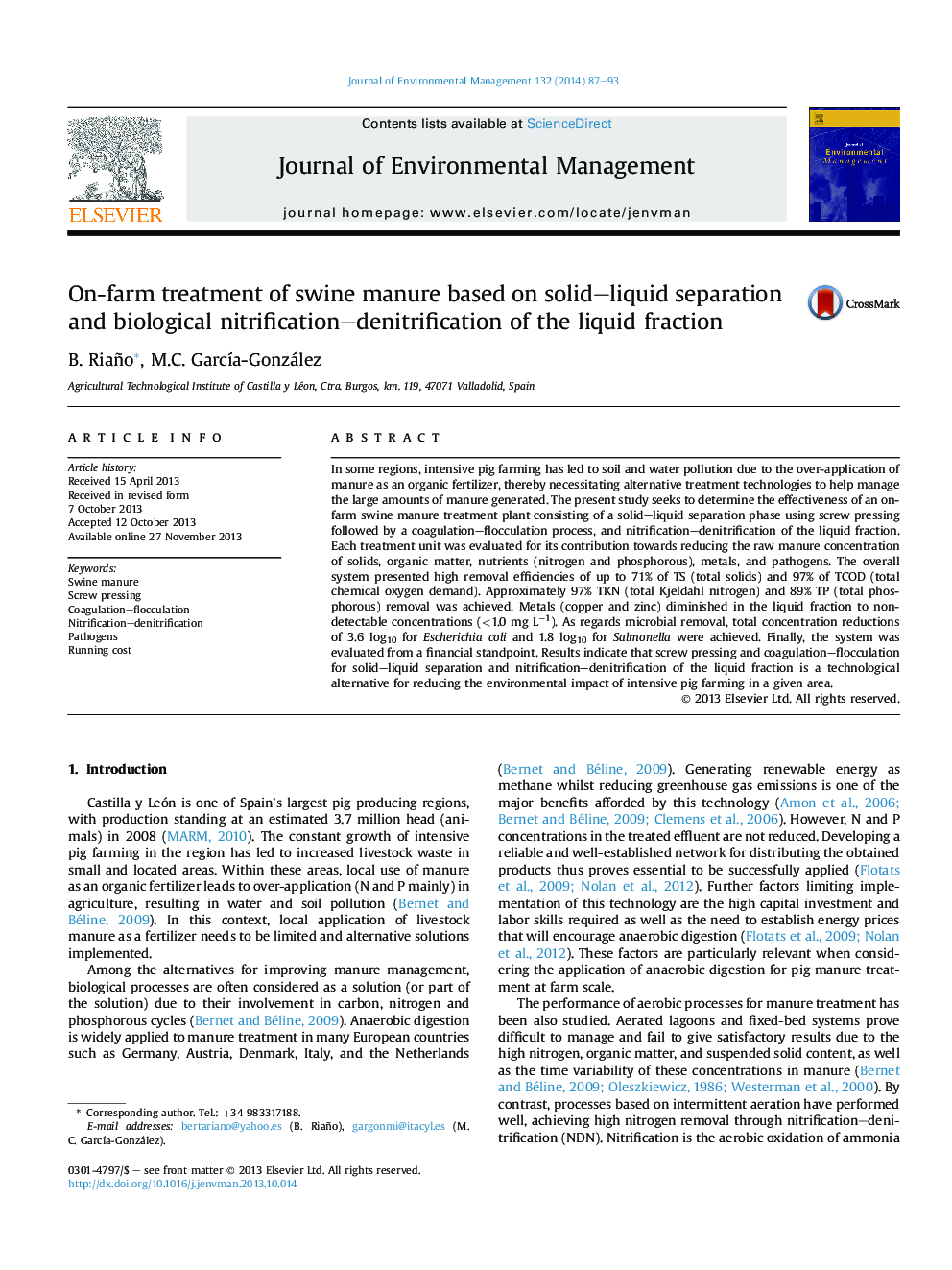| کد مقاله | کد نشریه | سال انتشار | مقاله انگلیسی | نسخه تمام متن |
|---|---|---|---|---|
| 1055784 | 1485280 | 2014 | 7 صفحه PDF | دانلود رایگان |
• An on-farm swine manure treatment plant has been studied.
• The plant comprises solid–liquid separation and nitrification–denitrification.
• High removal efficiency of solids (71%) and organic matter (97%) were achieved.
• Solid-liquid separation removed most of the microbes, Cu and Zn present in manure.
• Running cost of the system was estimated to be 3.3 €/m3 of treated manure.
In some regions, intensive pig farming has led to soil and water pollution due to the over-application of manure as an organic fertilizer, thereby necessitating alternative treatment technologies to help manage the large amounts of manure generated. The present study seeks to determine the effectiveness of an on-farm swine manure treatment plant consisting of a solid–liquid separation phase using screw pressing followed by a coagulation–flocculation process, and nitrification–denitrification of the liquid fraction. Each treatment unit was evaluated for its contribution towards reducing the raw manure concentration of solids, organic matter, nutrients (nitrogen and phosphorous), metals, and pathogens. The overall system presented high removal efficiencies of up to 71% of TS (total solids) and 97% of TCOD (total chemical oxygen demand). Approximately 97% TKN (total Kjeldahl nitrogen) and 89% TP (total phosphorous) removal was achieved. Metals (copper and zinc) diminished in the liquid fraction to non-detectable concentrations (<1.0 mg L−1). As regards microbial removal, total concentration reductions of 3.6 log10 for Escherichia coli and 1.8 log10 for Salmonella were achieved. Finally, the system was evaluated from a financial standpoint. Results indicate that screw pressing and coagulation–flocculation for solid–liquid separation and nitrification–denitrification of the liquid fraction is a technological alternative for reducing the environmental impact of intensive pig farming in a given area.
Journal: Journal of Environmental Management - Volume 132, January 2014, Pages 87–93
